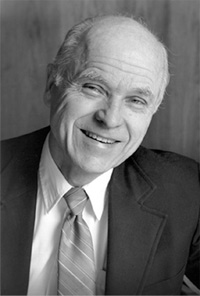When people consider some of the most influential Christian leaders from the twentieth century, names like Billy Graham and C.S. Lewis often come to mind. However, one of those figures includes the first chairman of Apostolos Missions International, Dr. Ralph D. Winter.
As both a missiologist and a missionary, Winter kept his thumb on the pulse of evangelical trends worldwide and sought to bring back the approaches to missions that were practiced in the early church. In this article, I will discuss why Ralph D Winter emphasized the necessity of establishing para churches as opposed to focusing on building single churches and how sodalities can improve strategies.
In his article, “The Two Structures of God’s Redemptive Mission,” Winter states that the first structure in the New Testament was constructed in the vein of the Jewish synagogue, which was open to believers everywhere. He says this structure’s attributes included both young and old, male and female. The second structure he mentions is best seen in the New Testament through Paul and his co-workers. Winter states that the church in Antioch sent Paul out and that Paul and his team usually funded their missions with occasional support from other congregations. The first structure can be referred to as modality, which centers around the synagogue and diocese.
The second structure can be thought of as sodality, which is centered around missionary bands and monasteries. Winter acknowledges that while both structures have been instrumental in the development and growth of the church, there has been quite a misunderstanding concerning sodalities. In his article titled “The Biggest Trend in Global Mission,” Winter says that there are mission agencies that only focus on establishing personal-salvation churches that aim to help people develop their faith. He acknowledges the usefulness of this strategy for missions.
Still, he mentions that it’s more biblical to admonish people to obey Christ as their lord, not just to believe that he exists and wants to benefit them only. He also notes how some agencies focus more on relief and developmental work but are sometimes guilty of compromising their faith and the gospel message for fellowship with the government. Although Winter briefly touches on the skewed evangelism strategies introduced in the 20th century, he mentions a growing realization among Christians to spread the gospel. He says that people in business are becoming more involved in supporting missions and that local congregations are sending more members overseas to evangelize.
Winter stressed the importance of having a balanced strategy for missions. Winter states, “Existing mission agencies that focus exclusively on evangelization and church planting must realize that such efforts alone fail to provide an example of the good works that faith is supposed to produce (Eph.2:10).” He goes on to say that our mission is to attack the kingdom of darkness considering Matthew 16:18.
As a parachurch, our goal should be to proclaim the gospel to the ends of the earth. Winter emphasizes that we are in a spiritual and physical war and can glorify God in both realms. His final point in the article is that although we are saved as individuals, we must serve as teams. When further developing this point, Winter states, “A final point here is that big problems usually require not just the work of concerned individuals but groups of organized individuals.
Very few young people will become full-time ministers, missionaries, or mobilizers. Most will be working in some other work, usually in the marketplace. That ‘lay’ work must also be a calling. Some work contributes more vitally to extending God’s will in this world than others. We must not assume that the highest-paying job is automatically God’s will. We are all called to do what we can do that will be the most effective in extending God’s will in this world. This will almost always require a business team or a mission team to be effective.”
Parachurches are adept at focusing their attention on targeting specific groups and spreading the gospel around the world. Both modalities and sodalities are biblical church structures, but without both, it’s challenging to establish a foothold in proclaiming the gospel and making disciples. If the early church were only focused on the growth of one church, then the gospel message would not have spread across the earth.
It’s clear from 2 Peter 3:9 that God desires everyone to be saved. If we have the same heart as Christ, we as believers must make and utilize strategies that help us, as Winter put it, “Reach the world’s hidden peoples. Let us pray that Christ would help us expand our capacity as a parachurch to reach those that have yet to hear the gospel message and encourage other churches and mission agencies to cast their nets further out into the sea to save souls.
